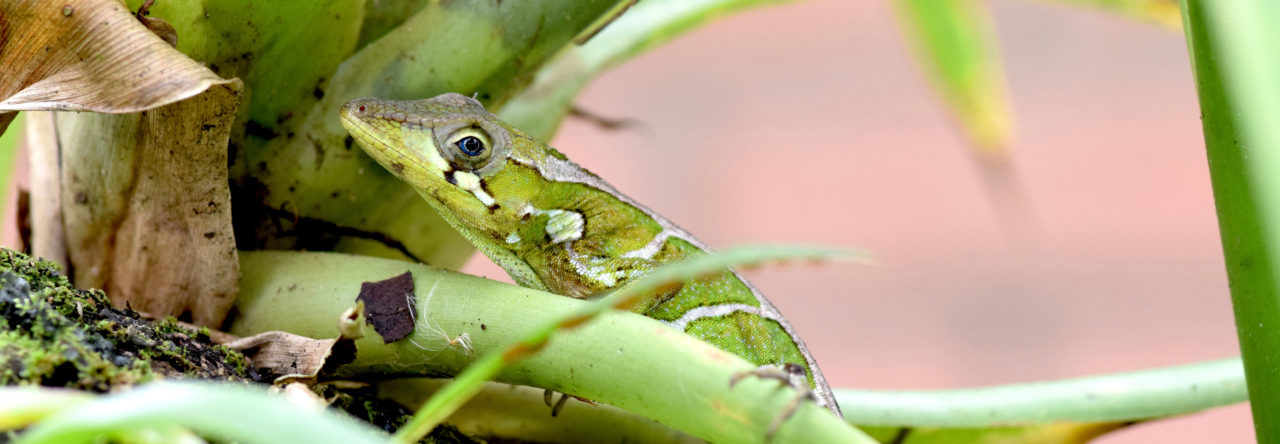
Anolis gundlachi. Photo by Alejandro Sanchez.
A recent study published in Biotropica by Beard et al. (2020) examines the impact of removing anoles (Anolis gundlachi, specifically) and perhaps the Caribbean’s most iconic frog, the coquí (Eleutherodactylus coqui), on arthropod densities.
Lizard and frog removal increases spider abundance, but does not cascade to increase herbivory.
Beard, K. H., Durham, S. L., Willig, M. R., & Zimmerman, J. K.
Abstract:
Insectivorous vertebrates, especially on islands, can exert top-down control on herbivorous prey, which can transfer through a food chain to reduce herbivory. However, in many systems insectivorous vertebrates feed on more than one trophic level, especially consuming arthropod predators, and this intraguild predation can diminish trophic cascades. Our goal was to determine, using an exclosure experiment, the relative importance of anole lizards and coqui frogs in controlling spider and arthropod abundances as well as herbivory rates in the understory of the Luquillo Experimental Forest, Puerto Rico. We found that exclosures removing both anoles and coquis doubled spider abundance compared to exclosures with anoles and coquis at natural densities. The effect of coquis on spiders was greater and occurred more quickly than that of anoles, potentially because of the higher natural densities of coquis and removal of both vertebrates produced no interactive effects. We found support for the idea that anoles, but not coquis, reduce foliar arthropod abundances on one of the two studied plant species. However, there was also evidence that anole removal decreased herbivory, the opposite of what we would expect if there was a trophic cascade. Potential explanations include that anoles reduced predatory arthropods on foliage more than they reduced herbivorous arthropods. Results highlight that the food web in tabonuco forest is not simple and that there are complex and dynamic relationships among vertebrate insectivores, predatory arthropods, and herbivorous arthropods that do not consistently result in a trophic cascade.
- A Good Week in Anole Genomics - October 31, 2023
- Evolution 2023: Anolis (presentations) in Albuquerque! - June 21, 2023
- Out with Dactyloidae, in with Anolidae - May 19, 2023


Leave a Reply